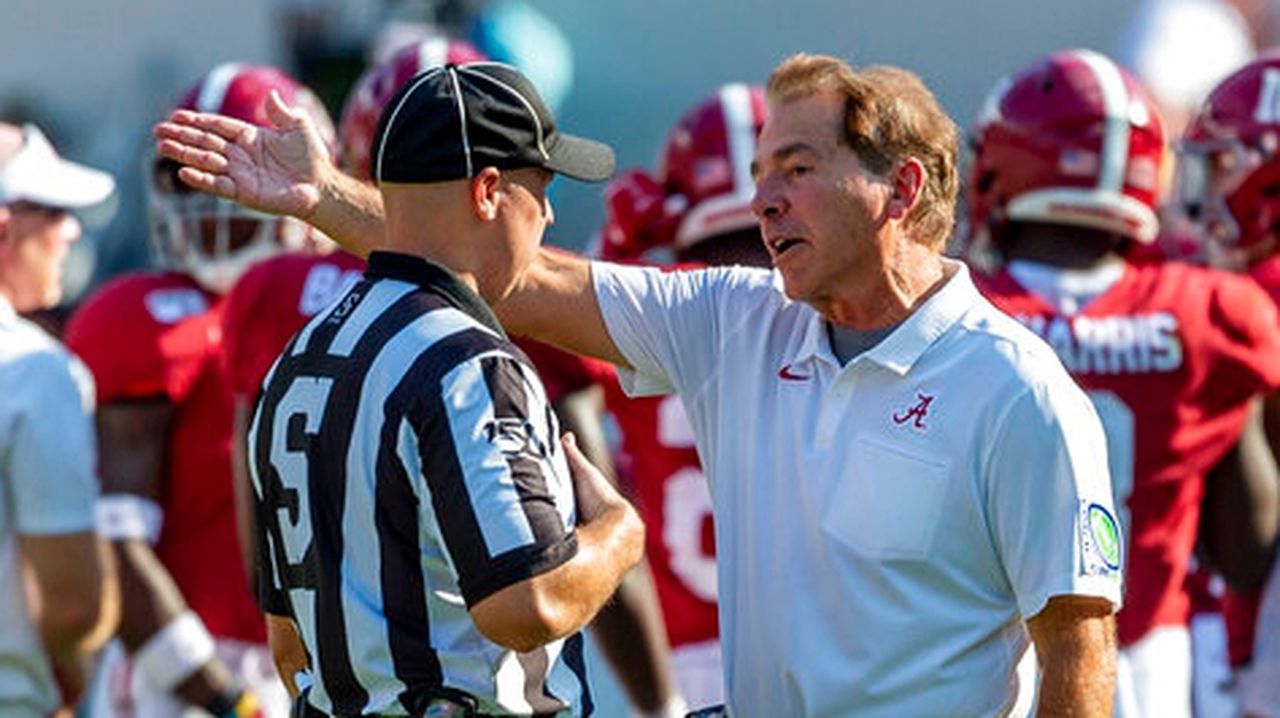What’s the impact of college football clock rule change?
In terms of rule changes, the impact of this year’s tweak to the clock doesn’t appear major.
But pearls are clutched anytime one of the few major differences between NFL and college regulations change. So how will the (mostly) rolling clock after first downs in 2023 change the collegiate game?
Brian Fremeau has been tracking college football analytics for nearly two decades and runs the site bcftoys.com. Its rating methodology deals with possessions and points scored per drive. Taking a look at early results from Week 0, Fremeau said he expects games to be shortened by around one possession per contest.
“Which is an interesting thing from a fan’s standpoint, it’s quote-unquote less football,” Fremeau said by phone. “In theory, maybe less of an opportunity for a comeback for a team that’s outmatched. At the same time, it’s harder for a team with an advantage to pull away if there are fewer players and fewer possessions. It’s going to take several weeks if not the full year to see if this hypothesis is true, if we see not just scoring reduced because of the change but the scoring margins of games should go down. The games should be incrementally more competitive if there are fewer plays and fewer possessions.”
The new rules have three parts with the first being the one getting most of the attention. Unlike in the past, the clock will not stop after every first down to reset the chains except for the final two minutes of the first and second halves.
“I don’t think they’re going to have a tremendous impact,” Nick Saban said Wednesday morning. “The clock not stopping on first downs is not gonna be a huge thing.. So I don’t really think it’s significant. I do think that when you get up in the 80s and 90s in terms of number of plays that you play in a game and how long the game becomes for the players is probably something that we need to continue to evaluate.”
Saban a decade ago had been a proponent of slowing down some of the up-tempo offenses in the same of safety and lowering the number of plays in a game.
Back then, Hugh Freeze was on the other side of that discussion as the coach of a high-octane Ole Miss.
Now at Auburn, Freeze is still trying to figure out how this rule will change things or if it will bring tempo more into play. From the analytics Freeze has seen, six to eight plays a game will be shaved off a typical game.
“And I’m not the most brilliant guy in the world, but … if you’re going to go fast after a first down, for those teams that choose to do that, you’re not going to lose that many seconds,” Freeze said Wednesday. “So I’m really curious if it has a huge advantage or disadvantage. I don’t see it changing your philosophy, whether you’re a tempo team or not, I just really don’t know how you go about doing that.
“I’ve done tempo for years, I don’t feel comfortable going fast just for going fast on second-and-long or third-and-long. You want to get it right. So there are only certain times where I feel comfortable doing that anyway. I do expect it to cut a few plays off in a game but I’m curious about what that number ends up being.”
The other two parts of the rule are less impactful on the overall pace. Coaches can no longer call consecutive timeouts at the end of games when they’d offload all remaining stoppages to ice a kicker. Also, there will be no untimed downs at the end of the first and third quarters. Any such moment that would call for one would become the first snap of the following period.
“I don’t think the timeout rules — they could have some impact on the game at the end of the game,” Saban said, “but everybody understands what they are.”
Alabama opens the season at 6:30 p.m. CT Saturday against Middle Tennessee State, a few hours after Auburn’s 2:30 p.m. CT kickoff with UMass in Jordan-Hare Stadium.
Michael Casagrande is a reporter for the Alabama Media Group. Follow him on Twitter @ByCasagrande or on Facebook.
